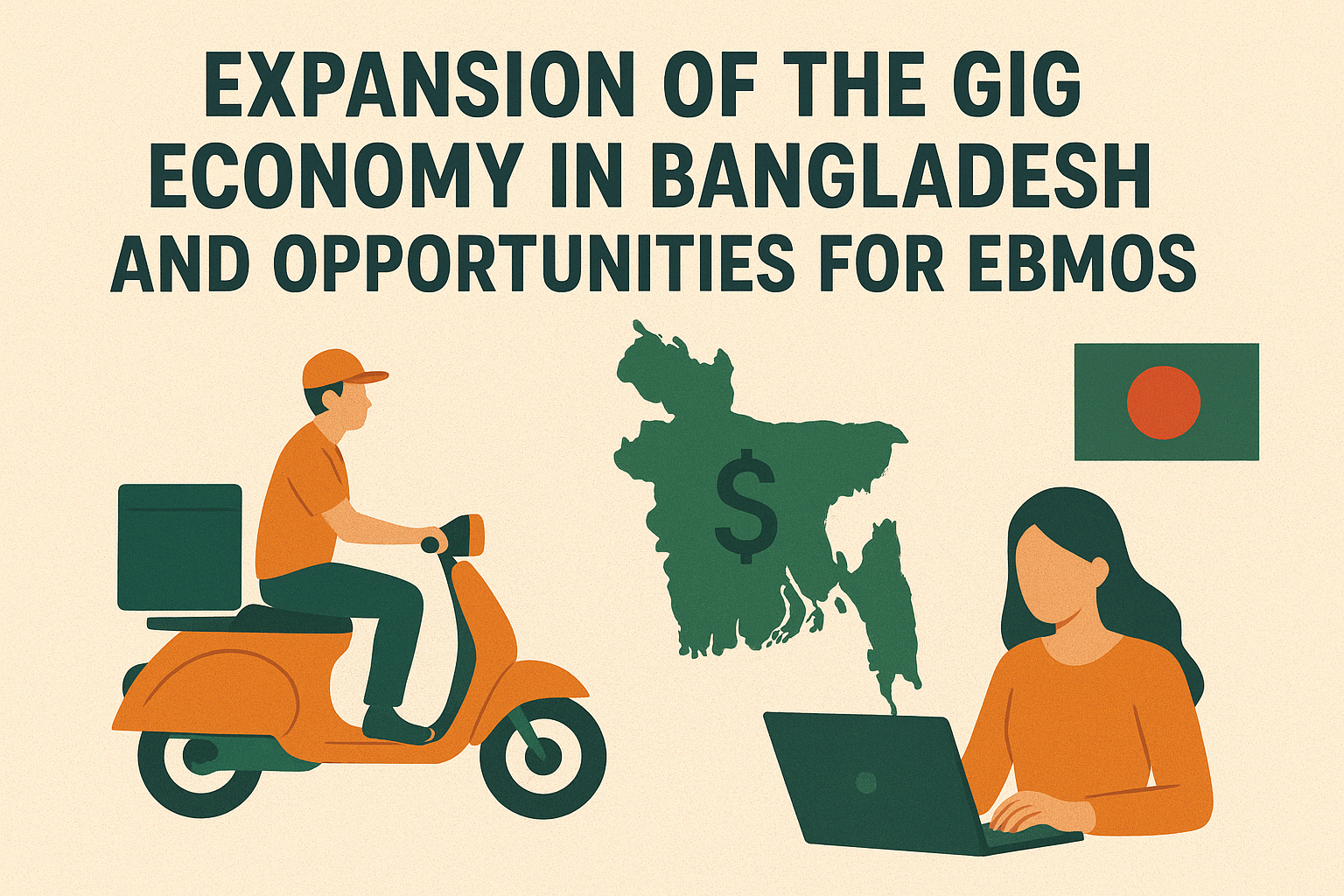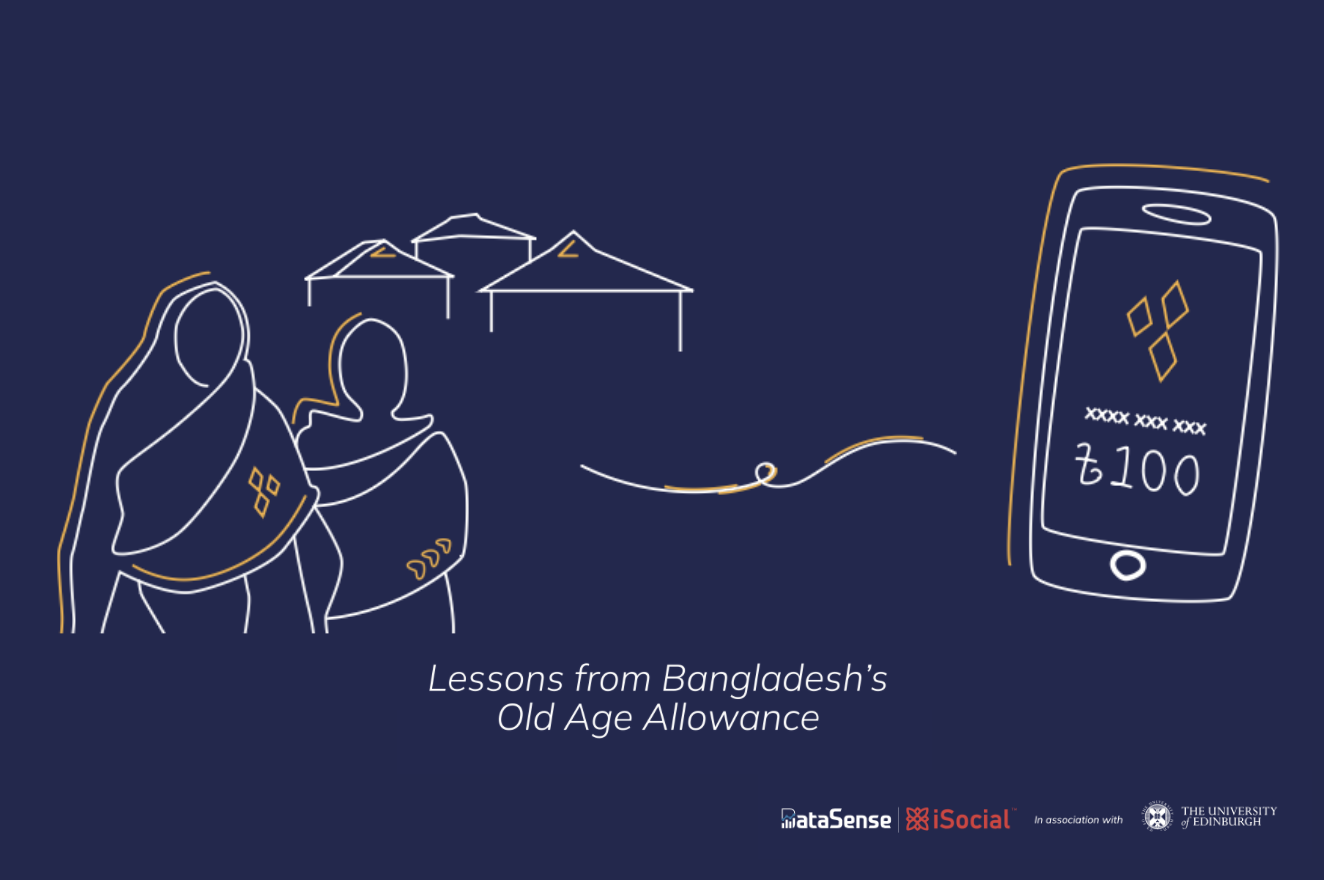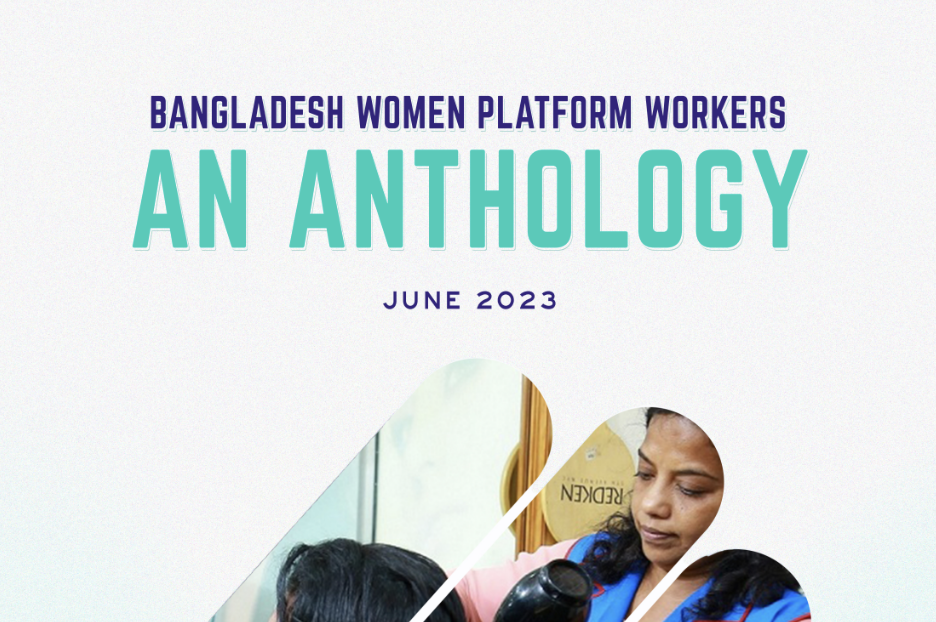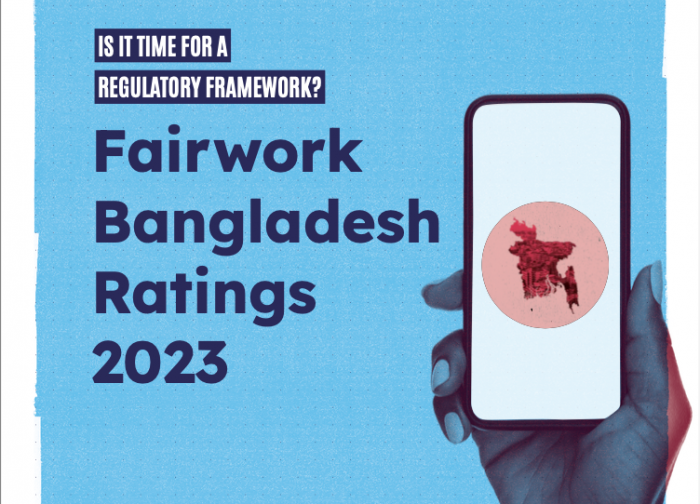This project, conducted for the International Labour Organization (ILO), aimed to examine the involvement of Employers and Business Membership Organizations (EBMOs) in Bangladesh’s emerging platform economy. The purpose was to identify gaps, challenges, and opportunities for EBMOs to promote decent work, worker protections, and inclusive policy development in the gig economy.
Project timeline: Jun, 2022- Oct, 2022
Name of Client: International Labour Organization (ILO), Bangladesh
Project objective:
This study explores the platform-based gig economy in Bangladesh by examining three main gig categories: location-based gigs, online freelance cloud work, and e-commerce last-mile delivery. It highlights the lack of clear legal protections for gig workers, who are often classified as independent contractors rather than employees. The research used a qualitative methodology, involving a two-stage survey of 60 gig workers from Dhaka and Chattogram across platforms like Foodpanda, Pathao, Sheba XYZ, Hello Task, and Upwork, followed by in-depth interviews with 20 workers. Key informant interviews (KIIs) were conducted with 11 representatives from stakeholders including government ministries, EBMOs, think tanks, trade unions, civil society, and platform companies to gain diverse insights. The study aims to identify challenges faced by gig workers and propose recommendations, especially relevant to employer and business membership organizations (EBMOs).
Project outcome:
- Diverse Gig Economy Structure:
The gig economy in Bangladesh operates through three distinct categories—location-based gigs, online freelance cloud work, and e-commerce last-mile delivery—each with unique operational and compensation models impacting workers’ experiences differently. - Legal and Regulatory Gaps:
Current laws do not clearly define gig workers’ status, leaving them without formal employee protections. The Ridesharing Guideline 2017 is the only sector-specific document but is non-binding. This lack of regulation leads to precarious working conditions and limits workers’ rights to fair wages, social security, and collective bargaining. - Worker Profile and Experience:
Through a two-stage survey (60 structured interviews and 20 in-depth interviews), the study revealed gig workers’ diverse backgrounds across multiple platforms (Foodpanda, Pathao, Sheba XYZ, Hello Task, Upwork) and highlighted challenges such as income insecurity, lack of benefits, and unclear contractual relationships. - Stakeholder Perspectives and Gaps:
Eleven key informant interviews with representatives from government, platforms, EBMOs, trade unions, think tanks, and civil society uncovered conflicting interests and a general lack of coordinated efforts to improve gig worker conditions or regulate the sector effectively. - Role of EBMOs and Platforms:
Findings emphasize the potential role of EBMOs in advocating for gig workers and bridging gaps between platforms and workers, while platforms continue to leverage independent contractor models to minimize legal responsibilities. - Research Methodology Strength:
The qualitative mixed-methods approach, combining literature review, surveys, and interviews, provided a comprehensive understanding of the gig economy’s structural, legal, and human dimensions in Bangladesh. - Recommendations Need:
There is a critical need for legal reforms recognizing gig workers’ rights, stronger social protections, clearer labor classifications, and multi-stakeholder collaboration involving government, platforms, workers, and EBMOs to ensure fair and sustainable gig work conditions.
Impact:
- Enhanced Understanding of Bangladesh’s Gig Economy:
The study has provided in-depth insights into the structure, challenges, and diversity of gig work across different platforms and sectors, filling critical knowledge gaps in an emerging and under-researched area. - Informed Policy Dialogue:
By highlighting legal ambiguities and regulatory shortcomings, the research has created a foundation for more informed discussions among policymakers, helping prioritize the need for updated labor laws and sector-specific regulations. - Empowerment of Gig Workers and EBMOs:
The findings emphasize the importance of empowering gig workers through collective representation and support from EBMOs, encouraging these organizations to take a more active role in advocating for workers’ rights and protections. - Platform Accountability Spotlighted:
The research has brought attention to how platforms’ classification of workers as independent contractors affects labor rights, potentially influencing platforms to reconsider their labor practices in the face of growing scrutiny. - Guidance for Stakeholders:
By documenting diverse stakeholder perspectives—from government ministries to civil society and platform operators—the study offers a roadmap for collaboration, highlighting where interests align or conflict and identifying entry points for engagement. - Foundation for Future Research and Interventions:
The comprehensive methodology and data collected provide a valuable baseline for future studies, enabling targeted interventions, policy design, and program development aimed at improving gig workers’ conditions. - Strengthened Multi-Stakeholder Engagement:
The study’s engagement with multiple stakeholders, including government bodies, platforms, and workers, has fostered a more inclusive conversation around the platform economy, setting the stage for collective action and sustained advocacy.




